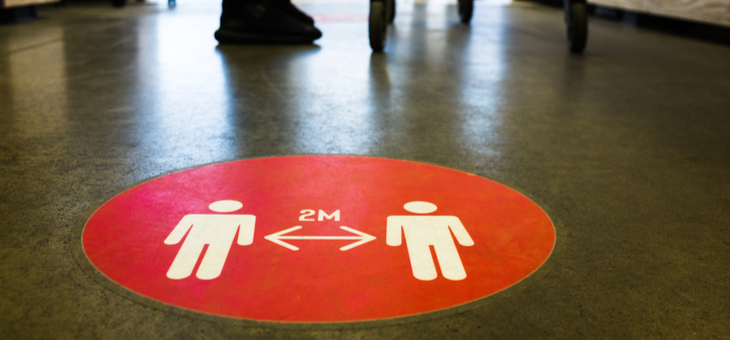Australia is likely to endure COVID-19 restrictions throughout 2021, with Prime Minister Scott Morrison warning that upcoming vaccinations are not a “silver bullet” against the deadly disease.
The government hopes to vaccinate four million Australians by April, and all of us by October.
It is spending $24 million on a vaccination advertising campaign targeting people identified as most unconvinced about vaccinations. Behind that program is a Quantum Market Research survey of 1000 people that revealed the drop in coronavirus cases is linked to a fall in how concerned people were about the pandemic, which “has the potential to erode motivation to take up the vaccine”.
Young women, migrants and Indigenous Australians will be the target of the “very detailed information program”, which will use social and traditional media to make sure Australians have confidence in the vaccine.
The New Daily is reporting that governments “would have to wait to see how vaccines worked, and what happens in the next winter danger period, before lifting rules”.
So, border closures, hotel quarantine and indoor venue capacity limits could remain until March 2022 or later.
“It won’t be before the end of the year, and then it depends on whether you have a view to eliminating the virus, or suppression to low levels,” Professor Peter Collignon, an infectious diseases expert at the Australian National University Medical School, told The New Daily.
“If it’s elimination, it might be two years before you take these down.”
Prof. Collignon said it was too early to predict when major COVID restrictions would ease, or when capacity at events could return to normal.
“People need to be careful. It won’t go back to normal instantly,” he told The New Daily.
“We’ll have to do COVID-safe activities until the end of this year or longer.
“We’ll need to keep rules until at least October this year. Only one-quarter of people will be vaccinated by winter, so three-quarters will be still susceptible, albeit at hopefully a lower death rate,” Prof. Collignon said.
He is concerned about the spread of the disease in winter, saying: “I think it would be very unlikely we’d be able to relax COVID rules for restaurants and bars until October.”
Prof. Collignon said hotel quarantine, the “four-square-metre rule” and restrictions on large gatherings were likely to stay for the foreseeable future.
And Australia’s main risk of virus spread, hotel quarantine, would be required until large nations overseas completed their vaccine programs.
“It won’t be until the end of the next northern winter, March next year, that we’ll have a good idea how it’s going,” Prof. Collignon said.
“The data we need to answer these questions will gradually evolve, but I won’t feel confident until we see what happens in the next northern hemisphere winter.”
Chief medical officer Paul Kelly says health authorities are uncertain about the effectiveness of vaccines and the speed of their roll-out. Australian authorities needed more robust analysis before making decisions on our dosing regime and how effective it would be.
Quarantine, healthcare and aged care workers and residents will receive the vaccines first. Older Australians, Indigenous people aged over 55, people with medical conditions and workers in critical sectors will be next.
Healthy adults aged under 50 who don’t work in high-risk sectors probably won’t be vaccinated until mid-2021, with children the last to be jabbed.
Nine is reporting that businesses and unions are lobbying for frontline workers such as bus drivers and checkout assistants to be included in the first cohort of those vaccinated. They believe workers dealing with the public and in essential services need to be prioritised and education, tourism, and trade “will lose key overseas contacts if they do not get a vaccine to travel”.
The government’s vaccination roll-out has already been pushed forward from March, with concerns about a new, more infectious strain of coronavirus prompting urgency.
From mid to late February, the first of five vaccine phases is expected to begin, looking to inoculate 678,000 people including health and quarantine workers, and those in aged care.
“For decision makers, 2021 will be very tricky because you’ll have partial vaccine rollout, but we’ll still need to maintain COVID-safe,” NSW Premier Gladys Berejiklian said on Sunday.
“What does the impact of the vaccine rollout mean? What does the impact of restrictions mean? And also, what other states do impacts us as well … we want people to feel more optimistic about 2021,” she said.
“Once the vaccination starts, COVID-safe practices do not end. They continue,” Mr Morrison said.
“It will still be a fight over the course of 2021.”
Are you prepared for another year of COVID-19 restrictions? Are you convinced enough that Australians will get vaccinated?
If you enjoy our content, don’t keep it to yourself. Share our free eNews with your friends and encourage them to sign up.
Related articles:
https://www.yourlifechoices.com.au/health/covid19/hang-in-there-australia-were-only-halfway-through-the-covid-marathon
https://www.yourlifechoices.com.au/work/jobs-for-seniors/middle-aged-australians-struggle-to-claw-back-their-careers-after-covid-19
https://www.yourlifechoices.com.au/lifestyle/pets-touch-and-covid-19-why-our-furry-friends-are-lifesavers

